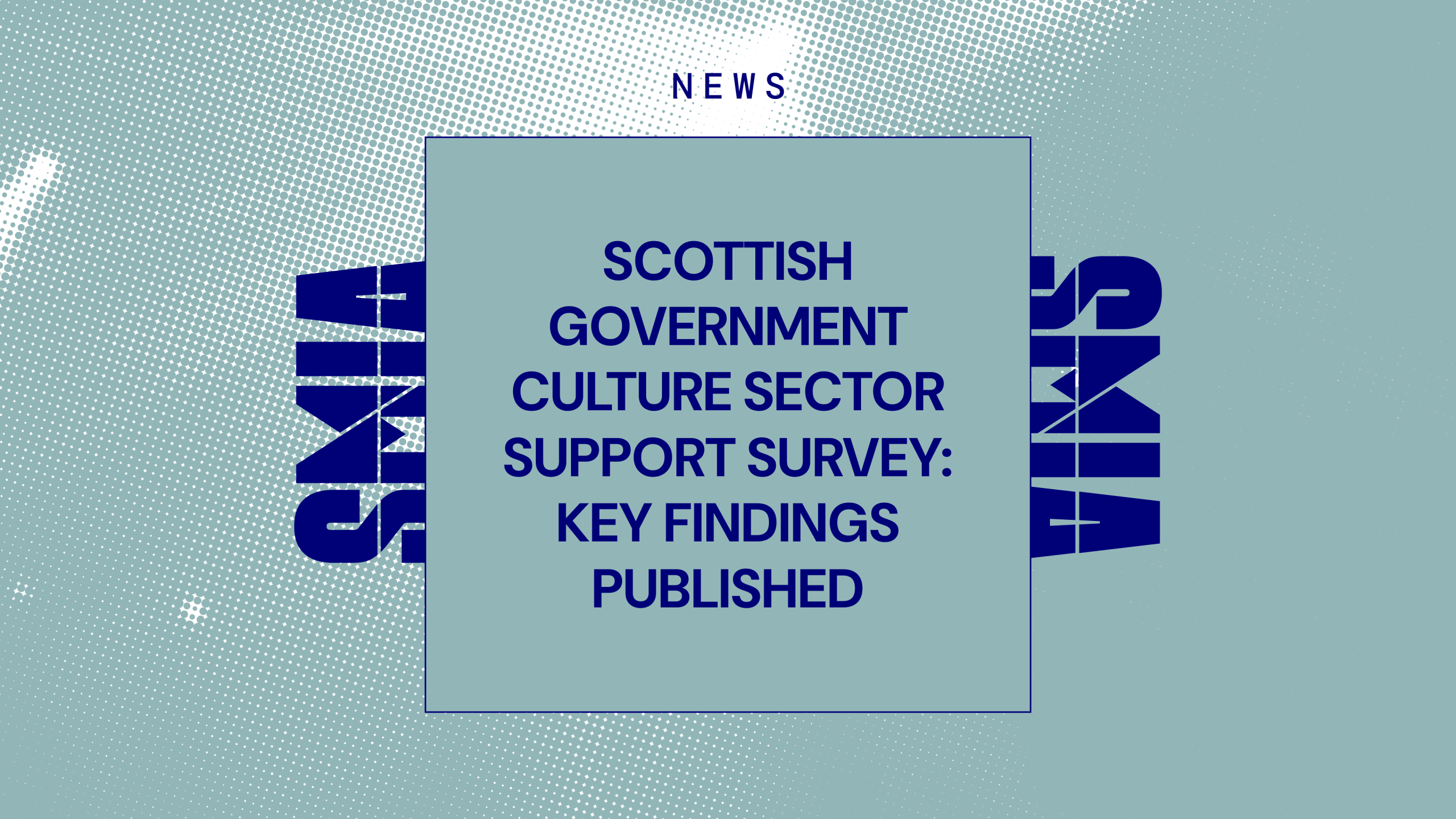The Scottish Government has published findings from its Culture Sector Support Needs Survey, which received 1,227 responses from across Scotland’s cultural community, including 737 individual practitioners and 490 organisations.
The survey was conducted to inform a wider review of how the culture sector is supported in Scotland, including the independent review of Creative Scotland, chaired by Dame Sue Bruce.
Key Findings:
- Financial Pressures: 75% of respondents stated that they are not currently financially sustainable. Freelancers and micro-organisations in particular reported difficulties accessing core funding, covering operating costs, and building financial resilience.
- Fair Work and Employment Conditions: Many raised concerns around insecure employment, low pay and lack of long-term contracts. Respondents called for better application of fair work principles and greater support for freelancers.
- Mental Health and Wellbeing: Individual practitioners highlighted the impact of financial insecurity and workload on their mental health.
- Access and Inclusion: There were calls for more inclusive routes into the sector, particularly for underrepresented groups.
- Bureaucracy and Complexity: Respondents noted that funding applications are often time-consuming and difficult to navigate, especially for smaller organisations and individuals.
- Support Infrastructure: Feedback included requests for more localised, tailored support and improved coordination between local and national funders.
These findings will feed into the Scottish Government’s broader review of how the culture sector is supported and help inform future policy decisions.
To read the full summary of results, visit: Culture Sector Support Needs Survey – Results
SMIA Sector Insights Survey
The SMIA is continuing to gather insights from music-related organisations that applied for Creative Scotland’s Multi-Year Funding.
If your organisation submitted an application, we’d value your input.
Responses will help build a clearer picture of sector needs and help us shape targeted support for our members and the wider sector .
All data will be anonymised and summarised in a sector-wide statement to be published in June.
Deadline: Friday 30 May 2025
